Archive
19 October 2018
Art from wastewater at the Dutch Design Week
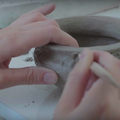
This week, three young designers and the Dutch water boards present Dutch Design made from 'Kaumera'. Kaumera is a new raw material that can be extracted from waste water by means of the Nereda purification process, which was developed in part by TU Delft. All three artists found a different application for the versatile raw material: in porcelain, textiles and woodwork. During the Dutch Design Week, from 20 to 28 October, the exhibition can be seen in the Veemgebouw (stand EFGF).
18 October 2018
QuTech researchers put forward a roadmap for quantum internet development
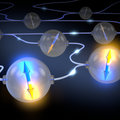
A quantum internet may very well be the first quantum information technology to become reality. Researchers at QuTech in Delft, The Netherlands, today published a comprehensive guide towards this goal in Science.
08 October 2018
Finnish Quantum company Bluefors starts R&D site on Delft Campus
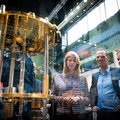
On 4 October during the Innovation Expo in Rotterdam, the Finnish company Bluefors announced that it will join the Delft quantum technology community and open an R&D office on the TU Delft campus.
05 October 2018
Ballistic graphene Josephson junctions enter microwave circuits
Superconducting quantum microwave circuits can function as qubits, the building blocks of a future quantum computer. A critical component of these circuits, the Josephson junction, is typically made using aluminium oxide. Researchers in the Quantum Nanoscience department at the Delft University of Technology have now successfully incorporated a graphene Josephson junction into a superconducting microwave circuit. Their work provides new insight into the interaction of superconductivity and graphene and its possibilities as a material for quantum technologies.
04 October 2018
TU Delft measurement technique shown to reveal important properties of quantum dots

Scientists have demonstrated that the positrons produced by the TU Delft research reactor are ideally suited for studying quantum dots, the building blocks of next generation solar cells.
28 September 2018
NWO-groot grant for brain imaging centre CUBE
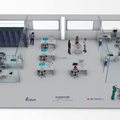
NWO has approved an application for the Center for Ultrasound Brain Imaging at Erasmus MC (CUBE), in which TU Delft is also involved. The science financier has earmarked nearly 2.5 million euros for the realization of CUBE.
25 September 2018
Hyun Youk joins CIFAR Global Scholars network

Hyun Youk (Bionanoscience) has been selected as one of the 12 early career researchers who will join the CIFAR Azrieli Global Scholars program. Youk will receive a prestigious two‐year term with 100,000 dollar in research support.
18 September 2018
Graphene tunnelling junctions: beyond the breaking point
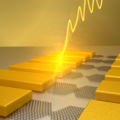
Molecular electronics is a burgeoning field of research that aims to integrate single molecules as active elements in electronic devices. Obtaining a complete picture of the charge transport properties in molecular junctions is the first step towards realizing functionality at the nanoscale. Researchers from Delft University of Technology have now studied the charge transport in a novel system, the ‘graphene mechanical break junction’, which for the first time allowed direct experimental observation of quantum interference effects in bilayer graphene as a function of nanometer-displacements. This new platform could potentially be used for electronic fingerprinting of biomolecules, from DNA to proteins, which in turn can have important implications for the diagnosis and treatment of diseases. The research was partly funded by the Graphene Flagship.
18 September 2018
Delft researchers push the boundaries of optical microscopy
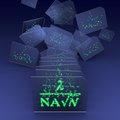
The field of optical microscopy research has developed rapidly in recent years. Thanks to the invention of a technique called super-resolution fluorescence microscopy, it has recently become possible to view even the smaller parts of a living cell. Now, by making a smart refinement to that technique, researchers at TU Delft have pushed its boundaries even further. Where previously objects measuring up to 10-20 nanometres could be observed, their method makes it possible to focus on structures of as tiny as 3 nanometres across.
12 September 2018
NWO Spinoza Prize for Delft bionanoscientist Marileen Dogterom
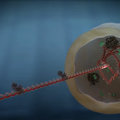
Marileen Dogterom, Professor of Bionanoscience at TU Delft, has been awarded the NWO Spinoza Prize; the highest award in Dutch science. Dogterom carries out research into the dynamics in living cells and leads a consortium which is aiming to build an entirely artificial cell.